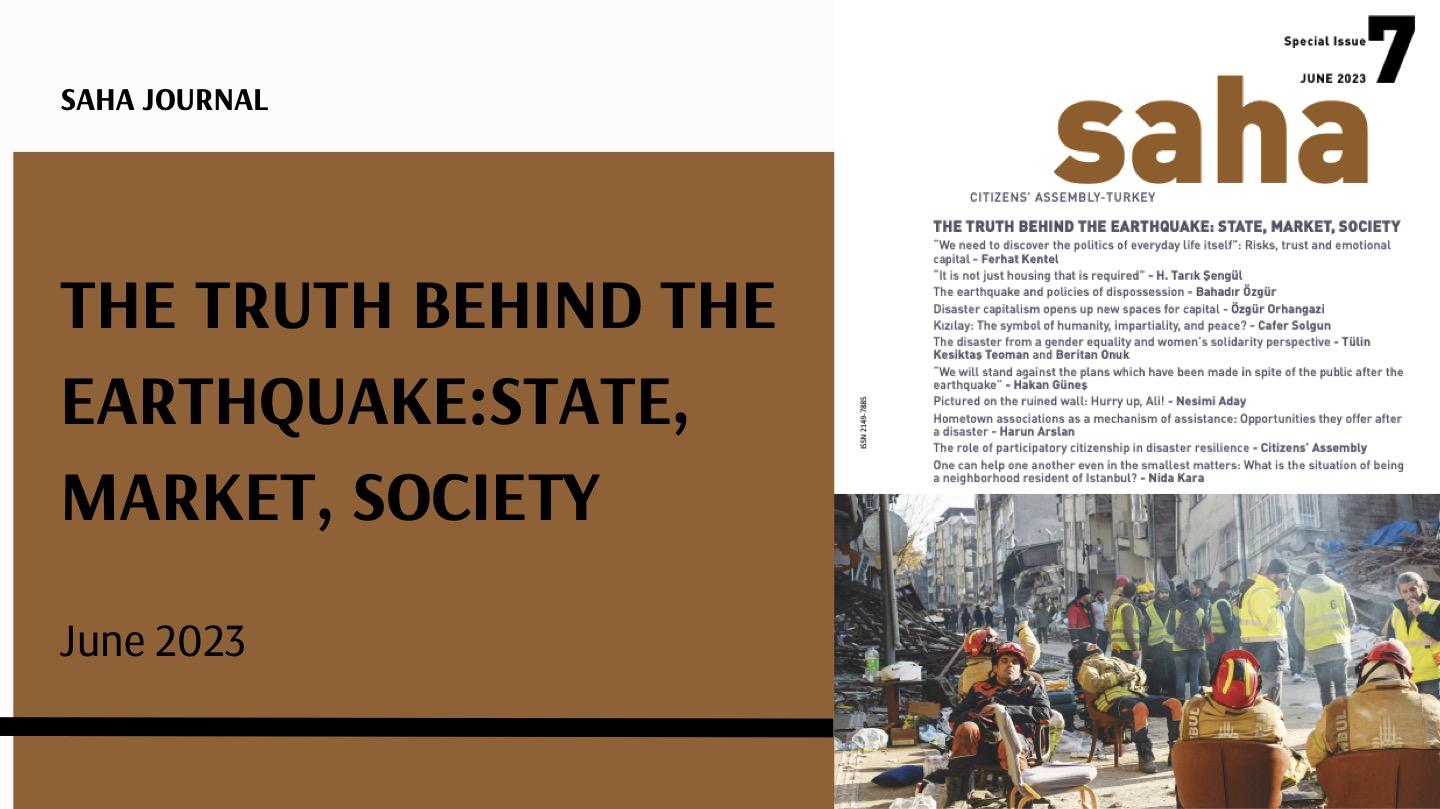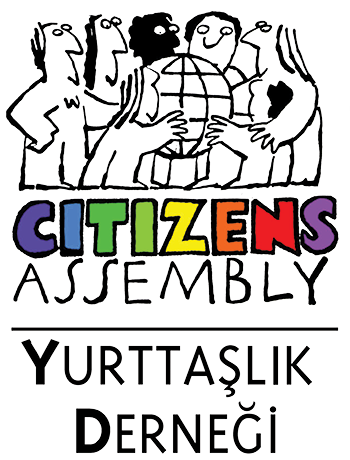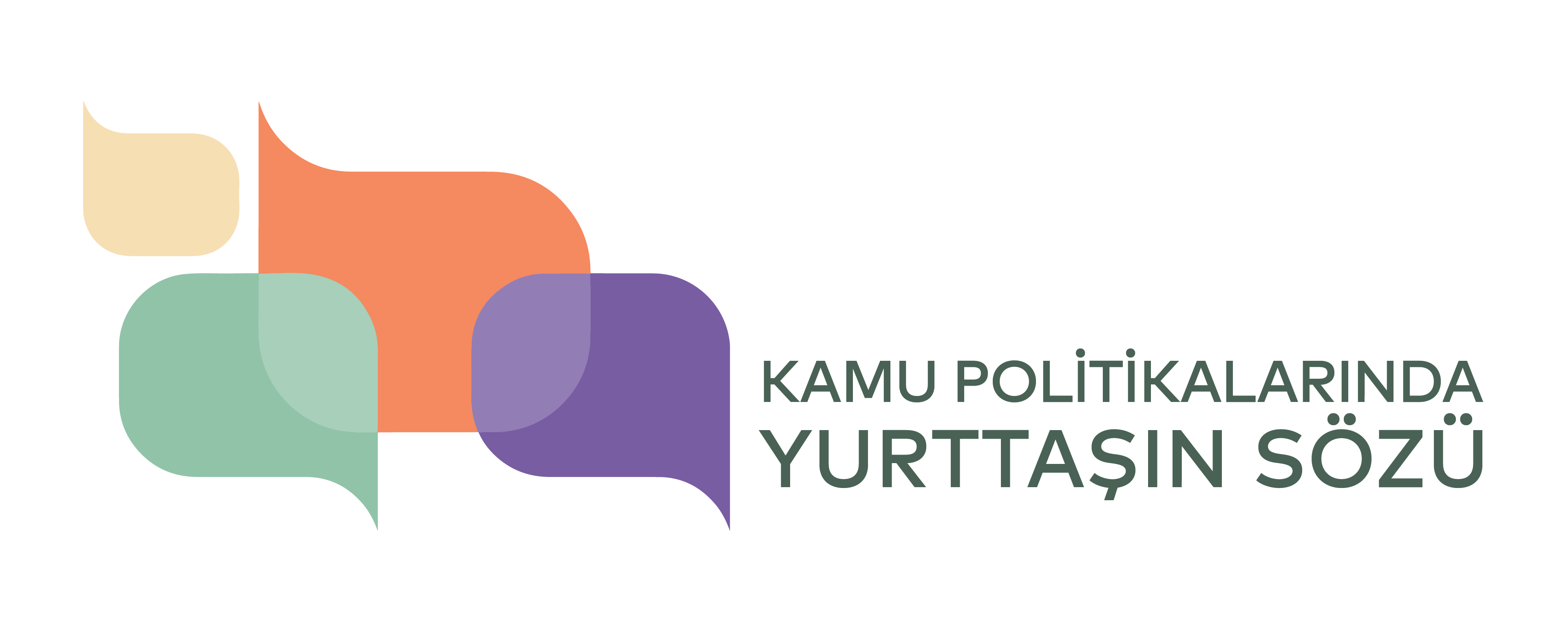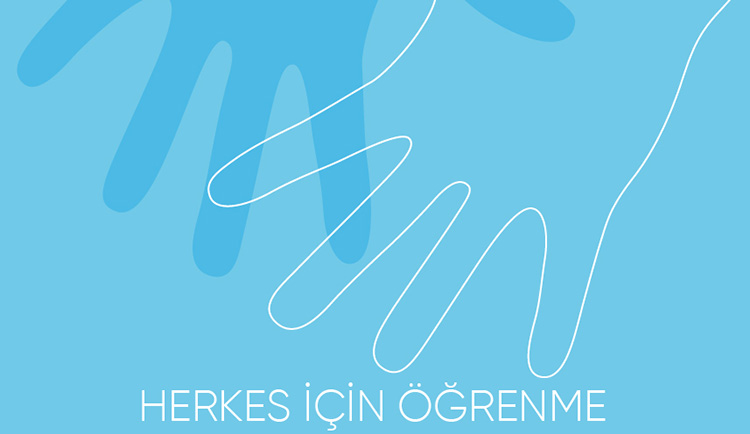
saha 7 - The Truth Behind the Earthquake: State, Market, Society
In our previous issue, we gave the following explanation for why we had chosen to focus on the subject of political participation: “At a time when the meaning of politics has been narrowed to refer only to the election process, it is necessary to broaden our conception of politics not only to the limited terms of elections and institutional political structures, but also beyond. Despite all the difficulties, we need such a reframing more than ever to make sense of the complexities and dilemmas we are currently facing.” When these lines were written, in the days of December 2022, the debates about the upcoming election had drawn out discussions about the different kinds of dilemmas encompassed within Turkish society, yet it had also somewhat overshadowed them. With the February 6 Kahramanmaraş earthquakes we witnessed, in the most painful way, how these dilemmas have become tangled in a knot.
After the earthquake, many commentators rightfully emphasized that disasters are not only natural but also social phenomena. They drew attention to the fact that the underlying causes of any event which reaches the level of disaster are essentially social conditions, relationships, and dynamics. In this sense, it can be expected that disasters will reveal moments of truth. It can be assumed that the need for questioning born out of the devastation, pain, and disappointment brought by the disaster will generate a widespread critical attitude.
It is widely recognized that the underlying reasons behind the significant loss of life experienced on 6 February are directly linked to Turkey’s pattern of urbanization: that responsibility lies with the various actors involved in the urbanization process, from the selection of settlement areas to the implementation of zoning plans, the construction process of individual buildings, and the pardoning of illegally constructed structures. The primary responsibility for these issues lies with past or current public administrators.
Similarly, the reasons behind the lack of coordination, initiative, inadequacy, and even occasional negligence that occurred in the hours and days immediately after the earthquake are evident, to a degree. Following the 1999 earthquake, the field of disaster management was centralized in order to facilitate swift and effective interventions. However, the stark reality facing us today indicates that the practical outcome of this centralization has had the opposite effect. Indeed, we’ve witnessed how the meaning attributed to disaster management has been reduced to that of alleviating the “possible destructive political consequences” of the disaster.
The truth regarding the events before, during, and after the disaster, and the roles and responsibilities of the state, the market, and powerful social groups in shaping this truth, is quite visible. But it is obvious that the disaster has not provided a moment of the expected encounter with this truth. It is necessary to acknowledge that this is an issue which extends beyond the outcome of the May elections, but is rather a broader societal and political situation. In other words, the earthquakes of February 6 mark a bleak milestone which extends beyond the immediate political context and reveals the dark state of structural transformation dynamics that have shaped Turkish society for the past two decades – and perhaps even since the aftermath of the September 12 coup.
It is now our duty to understand what these structural dynamics are. Undoubtedly, this should be a long-term inquiry that requires further continuation, new lines of questioning, and perhaps a re- examination that discards existing assumptions and fills the gaps with fresh readings. In this issue of saha, we set out with the aim of modestly contributing in this direction. In a world shaped by multiple crises, at a time when vulnerabilities and uncertainties are deepening, we delve into the various aspects of state-market-society relations in the context of the earthquake to reconsider the meaning of citizenship. We work towards this in the hope that the reconstruction after the earthquake will lead to the reconstruction of a better life.





